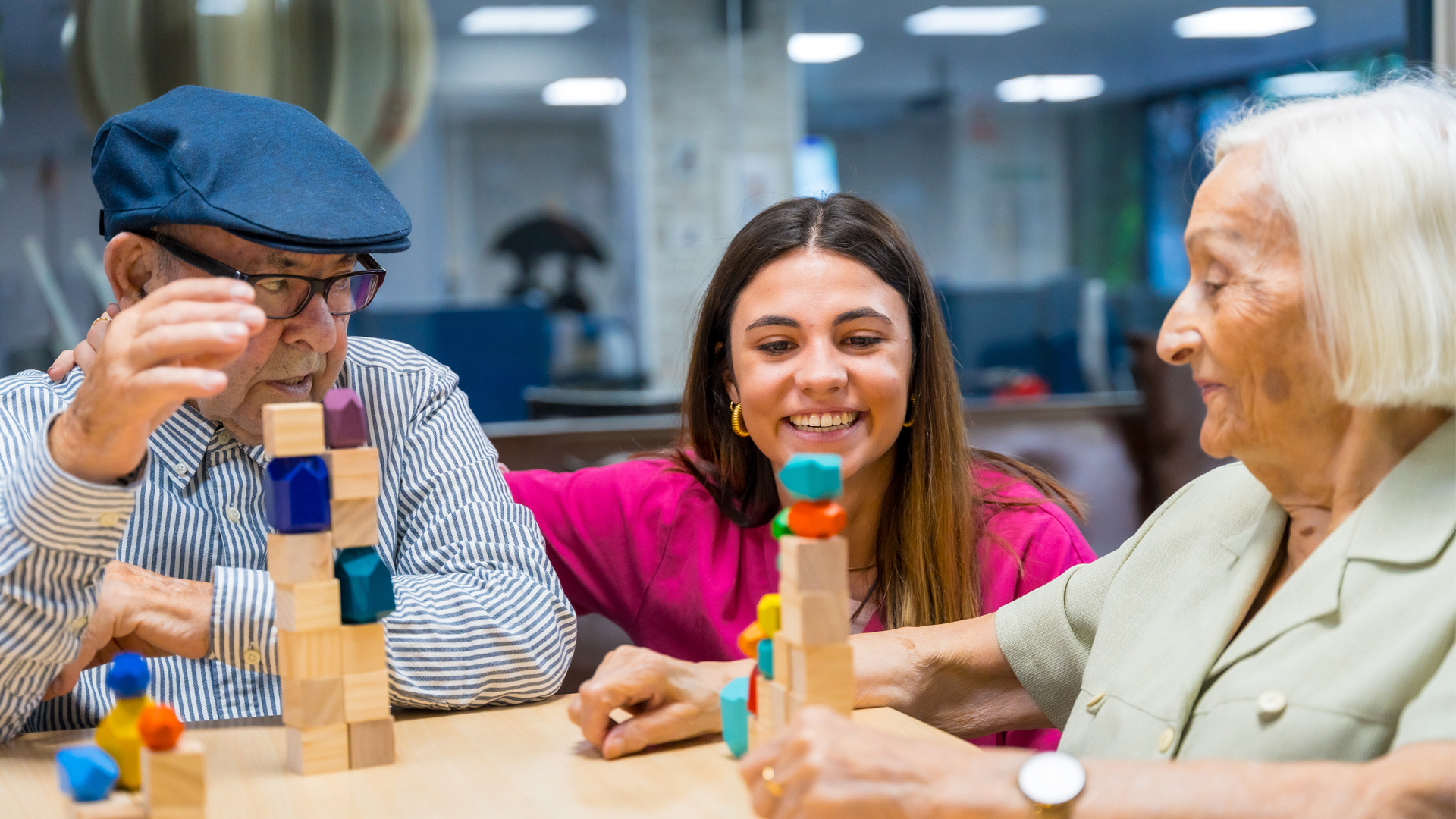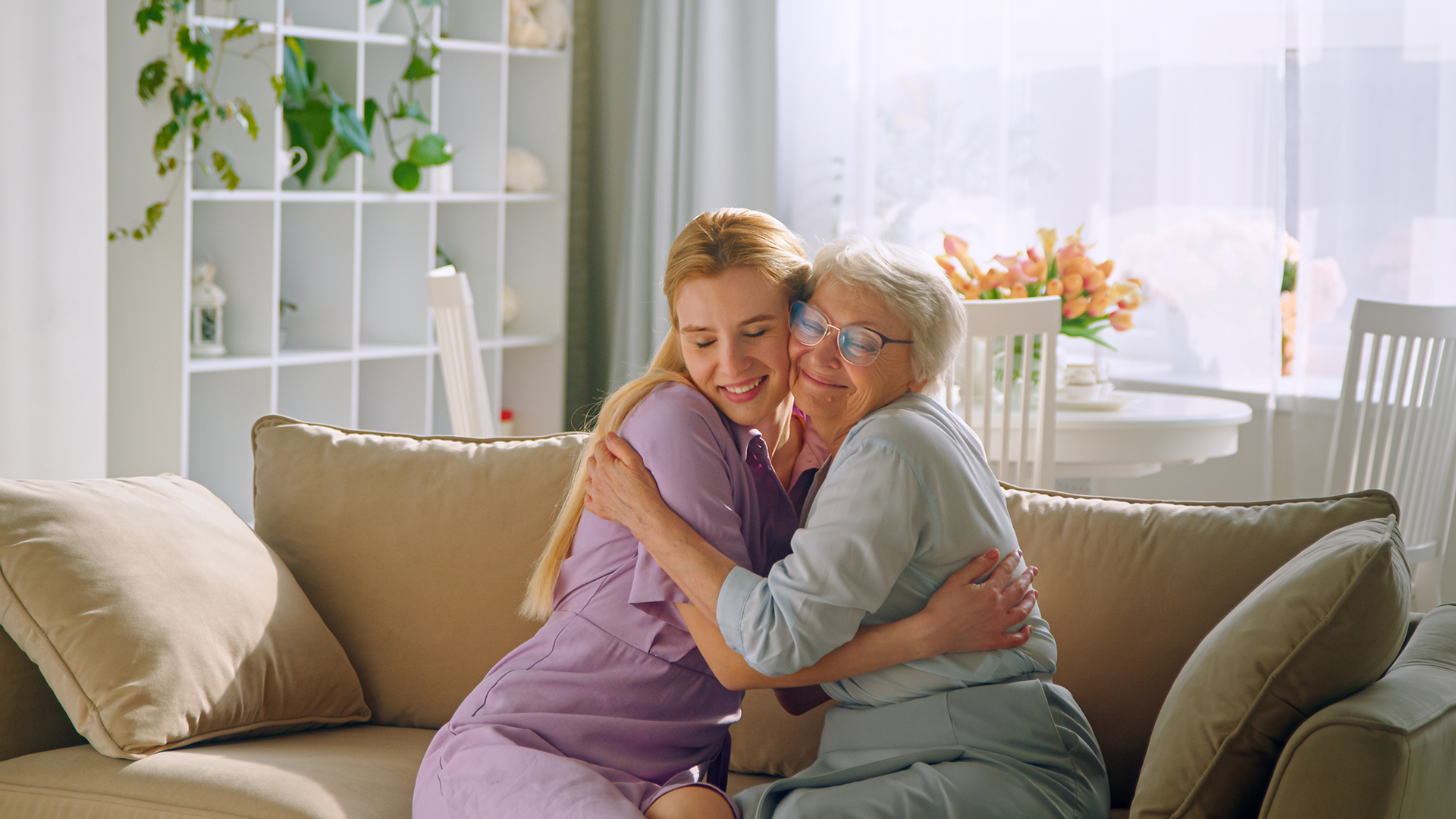For some people with cognitive decline, late afternoon and early evening can be challenging. As day begins fading into night, people with dementia and Alzheimer’s may experience a phenomenon called sundowning, which includes a collection of symptoms like restlessness, agitation, irritability, or confusion.
What Causes Sundowning?
Though doctors and researchers have yet to determine what leads to sundowning behavior, the leading hypothesis is that dementia-related brain changes can shift the natural circadian rhythm, leading to an imbalanced sleep-wake cycle.
Other possible causes of sundowning include:
- Being overly tired
- An inability to clearly articulate needs such as hunger or thirst
- Depression and anxiety
- Pain
- Boredom
How to Manage Sundowning Symptoms
If you are caring for a loved one with dementia or Alzheimer’s, you may notice signs of sundowning such as confusion, wandering, or yelling. If your loved one gets upset, listen patiently to their concerns and frustrations. Staying calm and reassuring them that everything is OK could divert a memory loss patient long enough to forget why they were angry or anxious.
You can also try these tips:
- Create a soothing oasis by removing noise, clutter, and other stressful stimuli.
- Try to distract your loved one. For example, offer them something to eat, ask for their help with a simple task like folding towels, or put on a favorite movie.
- Designate early evening as a time for relaxation. You might play soothing instrumental music, enjoy a cup of herbal tea, or go for a walk.
- If possible, open windows and let more natural light in during the day. Try dimming the lights starting in the late afternoon.
Can You Prevent Sundowning?
If sundowning continues to be a problem, schedule an appointment with a physician. A medical exam may pinpoint a cause, such as pain, a sleep disorder or other illness, or a medication side effect.
Fatigue can increase late-afternoon and early-evening restlessness. Try to avoid this situation by encouraging your loved one to:
- Go outdoors or at least sit by an open window – exposure to sunshine can help reset the 24-hour body clock.
- Exercise daily.
- Get daytime rest as needed, but keep naps brief and earlier in the day.
- Get at least seven to nine hours of restful sleep every night.
Do not do these things that can make sundowning symptoms worse:
- Serve caffeine or alcohol, which can worsen agitation and anxiety.
- Plan too many daily activities – a full schedule can be overly tiring.
Specialized Home Care for Sundowning and Dementia
Sadly, the challenges associated with sundowning lead many families to make the heartbreaking decision to move their loved one into an assisted living facility. However, other options are available.
At Legacy Homecare LA, it’s our mission to create the best day, every day, for our clients and their families. We believe aging in place can benefit everyone, and we live our values by providing experienced caregivers for a wide range of progressive illnesses that can affect people as they get older. Our highly trained Care Companions know how to navigate the daily changes associated with your loved one’s condition, and we are here to help improve their quality of life. Contact us today to learn if we can benefit your family.






